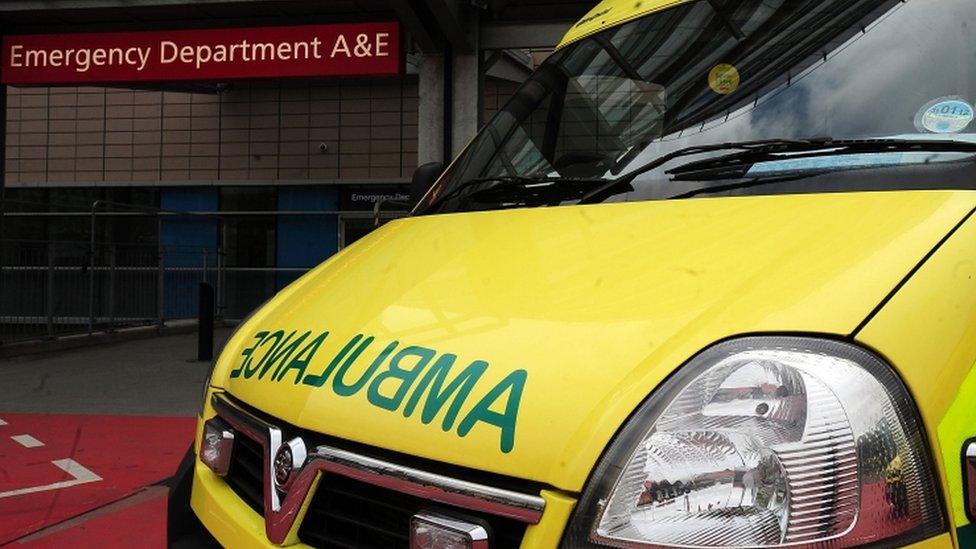Head-injury man wins 'unique' NHS payout
- Published

A man left paralysed following "misleading" advice by an A&E receptionist will receive damages after winning a landmark ruling.
Michael Darnley was wrongly told he faced a five-hour wait for a head injury at the Mayday Hospital in Croydon, south London, in May 2010.
He went home and suffered a bleed on the brain which left him with left-sided paralysis.
The Supreme Court ruled the giving of such information to be "negligent".
Mr Darnley's solicitor, Deborah Blythe, said this was the first case involving compensation for an injury caused by a receptionist giving misleading information at A&E.
Mr Darnley was struck over the back of the head by an unknown attacker and was taken to the hospital by a friend.
'Take painkillers'
He told an A&E receptionist he was worried he had a head injury and needed urgent attention, but she told him to sit down and said he would have to wait up to five hours to be seen by a doctor.
After 19 minutes, he left the hospital because he felt too unwell and wanted to go home so he could take painkillers.
Within an hour of returning home, he collapsed and was rushed back to the hospital by ambulance before being transferred to another hospital, where he underwent emergency surgery.
Despite rejecting his original case, the High Court judge found Mr Darnley would have made a "very near full recovery" had he still been at the Mayday Hospital when he collapsed.
'Entitled to payout'
His claim was later upheld by the Court of Appeal. Five Supreme Court justices have now unanimously ruled that he is entitled to compensation.
Announcing the court's decision on Wednesday, Lord Lloyd-Jones admitted the pressures on medical staff were "enormous", but concluded: "It is not unreasonable to require receptionists to take reasonable care not to provide misleading information as to the likely availability of medical assistance."
He added that the "provision of such misleading information [...] was negligent".
The amount of damages will be assessed by the High Court at a later date.